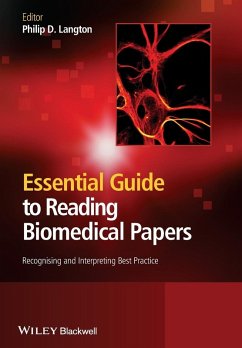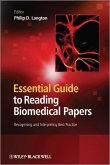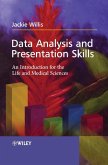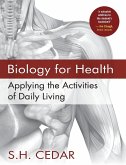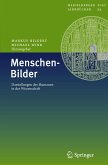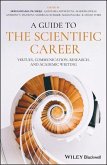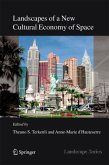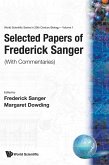Essential Guide to Reading Biomedical Papers: Recognising and Interpreting Best Practice is an indispensable companion to the biomedical literature. This concise, easy-to-follow text gives an insight into core techniques and practices in biomedical research and how, when and why a technique should be used and presented in the literature. Readers are alerted to common failures and misinterpretations that may evade peer review and are equipped with the judgment necessary to be properly critical of the findings claimed by research articles. This unique book will be an invaluable resource for students, technicians and researchers in all areas of biomedicine.
Allows the reader to develop the necessary skills to properly evaluate research articles
Coverage of over 30 commonly-used techniques in the biomedical sciences
Global approach and application, with contributions from leading experts in diverse fields
Allows the reader to develop the necessary skills to properly evaluate research articles
Coverage of over 30 commonly-used techniques in the biomedical sciences
Global approach and application, with contributions from leading experts in diverse fields
"As a guide to how to properly ask questions of life and how to interpret its often-enigmatic answers, this book is a must read. Summing Up: Highly recommended. Upper-division undergraduates, graduate students, researchers/faculty, and professionals." -- Choice, 1 August 2013
"Too many recent bioscience graduates lack significant research lab experience. Even research projects can expose them to just a few techniques. Appraisal of research papers in undergraduate courses tends to address the results, but rarely includes a critical evaluation of the researchers methodology. In reality, few bioscientists can claim a working knowledge of more than a handful of the techniques covered in this collection.
These shortcomings can be greatly overcome thanks to this book. The contributors are active research scientists of high quality. Each addresses the methods in a critical sense and provide an expert's view of the advantages and pitfalls. There is no equivalent book currently available." -- Dr David J. Miller on behalf of The Physiological Society
"Research questions require the scientist to employ molecular, cell, organism and population approaches, and the reader of scientific literature to carefully consume data from each of those environments. This book provides a clear and concise summary of the research techniques and approaches that generate data. Importantly, the authors identify appropriate uses and cautionary caveats, essential for readers who do not use the technique. This book is essential for accurate and careful interpretation of scientific literature." -- Professor Robert G. Carroll, Editor Advances in Physiology Education
"Too many recent bioscience graduates lack significant research lab experience. Even research projects can expose them to just a few techniques. Appraisal of research papers in undergraduate courses tends to address the results, but rarely includes a critical evaluation of the researchers methodology. In reality, few bioscientists can claim a working knowledge of more than a handful of the techniques covered in this collection.
These shortcomings can be greatly overcome thanks to this book. The contributors are active research scientists of high quality. Each addresses the methods in a critical sense and provide an expert's view of the advantages and pitfalls. There is no equivalent book currently available." -- Dr David J. Miller on behalf of The Physiological Society
"Research questions require the scientist to employ molecular, cell, organism and population approaches, and the reader of scientific literature to carefully consume data from each of those environments. This book provides a clear and concise summary of the research techniques and approaches that generate data. Importantly, the authors identify appropriate uses and cautionary caveats, essential for readers who do not use the technique. This book is essential for accurate and careful interpretation of scientific literature." -- Professor Robert G. Carroll, Editor Advances in Physiology Education
"The book would be of most benefit to new researchers or early career scientists though with some benefits to the more experienced scientist moving into a new discipline." (Microbiology Today, 1 September 2013)
"As a guide to how to properly ask questions of life and how to interpret its often-enigmatic answers, this book is a must read. Summing Up: Highly recommended. Upper-division undergraduates, graduate students, researchers/faculty, and professionals." (Choice, 1 August 2013)
"Too many recent bioscience graduates lack significant research lab experience. Even research projects can expose them to just a few techniques. Appraisal of research papers in undergraduate courses tends to address the results, but rarely includes a critical evaluation of the researchers methodology. In reality, few bioscientists can claim a working knowledge of more than a handful of the techniques covered in this collection.
These shortcomings can be greatly overcome thanks to this book. The contributors are active research scientists of high quality. Each addresses the methods in a critical sense and provide an expert's view of the advantages and pitfalls. There is no equivalent book currently available." Dr David J. Miller on behalf of The Physiological Society
"Research questions require the scientist to employ molecular, cell, organism and population approaches, and the reader of scientific literature to carefully consume data from each of those environments. This book provides a clear and concise summary of the research techniques and approaches that generate data. Importantly, the authors identify appropriate uses and cautionary caveats, essential for readers who do not use the technique. This book is essential for accurate and careful interpretation of scientific literature." Professor Robert G. Carroll, Editor Advances in Physiology Education
"As a guide to how to properly ask questions of life and how to interpret its often-enigmatic answers, this book is a must read. Summing Up: Highly recommended. Upper-division undergraduates, graduate students, researchers/faculty, and professionals." (Choice, 1 August 2013)
"Too many recent bioscience graduates lack significant research lab experience. Even research projects can expose them to just a few techniques. Appraisal of research papers in undergraduate courses tends to address the results, but rarely includes a critical evaluation of the researchers methodology. In reality, few bioscientists can claim a working knowledge of more than a handful of the techniques covered in this collection.
These shortcomings can be greatly overcome thanks to this book. The contributors are active research scientists of high quality. Each addresses the methods in a critical sense and provide an expert's view of the advantages and pitfalls. There is no equivalent book currently available." Dr David J. Miller on behalf of The Physiological Society
"Research questions require the scientist to employ molecular, cell, organism and population approaches, and the reader of scientific literature to carefully consume data from each of those environments. This book provides a clear and concise summary of the research techniques and approaches that generate data. Importantly, the authors identify appropriate uses and cautionary caveats, essential for readers who do not use the technique. This book is essential for accurate and careful interpretation of scientific literature." Professor Robert G. Carroll, Editor Advances in Physiology Education

